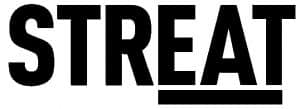In that first unforgettable week of the pandemic, when we were all sent to work from our homes, and told never to shake hands again, and to learn the words ‘socially isolate’, and to recognise that our world might never be the same again, it was reasonable to curl up into a ball.
But not if you’re STREAT’s Bec Scott. She barely blinked.
Bec sat down and wrote a lightning-fast discussion paper, outlining her Big Plan, and, before the week was out, had started ringing other social-enterprise entrepreneurs, outlining a vision for something that would quickly become Moving Feast.
Farmers, cafés, kitchens, delivery services – all united by social enterprise and delivering meals or food boxes for those who most need them – must have felt their cause was lost, as the state faced months of lockdown. Instead, here was Bec, asking if they wanted to be part of building a more fair and regenerative food system for Melbourne and Victoria, using the pandemic as the lightning rod to raise to scale? Starting immediately.
“The thing is, we had already done the thinking,” Bec explained. “I guess when the pandemic hit, STREAT had already decided as an organisation that we were very much moving into urban agriculture and urban farming, so we had already started – we had two horticulturists at STREAT and were already developing our first training pathway for young people into horticulture. We had also done STREAT’s 2040 strategy which had two key features; we were equally about planet as much as we were about people: people and planet. Also, that there were opportunities to create what I call green-collar jobs. So, all the green jobs of the future that would be highly relevant for our young people that we can create across the city.”
Bec is the sort of person who goes for a holiday and takes dozens of academic reports and studies about Future City and Future State by the short-lived Victorian Eco-Innovation Laboratory, a group of visionary academics at Melbourne Uni. Their work included re-imagining how our cities could work and deep thinking about what Victoria’s future potential food systems might look like, and Bec would return from a day out to giant sheets of butcher’s paper where she would sketch those food system futures and consider where STREAT might play a role.
“That first week of the pandemic, I put all of that thinking down in a paper and it was a really simple paper that just said why we need food social enterprises during the pandemic, stepped out the logic of why we had to do what we had to do, and then speed dialled a lot of social enterprise peers who were also in the food system and said: do you want to have a crack at building this thing, and every single one who I rang said yes, we’re about to close our doors anyway,” she said.
Bec then rang philanthropic supporters, including long-time supporter the Newsboys Foundation, asking if existing funding could be diverted into the new project, titled Moving Feast, or chasing new funding. The Newsboys Foundation was among the first to offer
that support.
“I distributed the funds among everyone very rapidly to try and keep as many doors open and start to work on this system together,’ she said. “Six months later, we’ve kept the doors open, done a lot of work together, created a lot of meals for young people and their families, and produce food boxes, but really, we’re equally excited and focused on what is the long term fair and regenerative food system work that could be done – not just the food aid stuff we have been doing.”
Moving Feast’s immediate success has been to grow, cook and deliver meals for the state’s most vulnerable people, along with creating food boxes, jobs and training. More than 120,000 meals and 20,000 produce boxes have been delivered, more than 60,000 seeds planted and harvested. Collaborative ways of feeding a city where all the systems are suddenly unsure provides optimism in the midst of an otherwise bleak year.
But Bec is only just getting started. The grand, long-term future vision for Moving Feast sees the state’s social enterprises continue to work together to create a more regenerative and fair food system for Victoria. Bec talks about the recreation of the geographic region’s Indigenous food bowl capacity, where the concrete metropolis of Melbourne currently sits. “The city could look very different in five years,” she says, and there’s no reason that can’t include orchards on rooftops, veggie plots along the Yarra or other ways of turning the space into a place of mutual living, working and growing.
“What are the opportunities to regenerate the city, using food, growing and connectiveness to food system that needs to happen anyway? What would it look like to build the Birrarung Food Bowl 2.0 – creating enormous edible gardens across the city, large scale community gardening infrastructure across the city? Imagine if every person in this city who wants access to their own plot of land to grow food could have that? Imagine if every young person who needed a job could end up in a prized role of urban farming? I think we could honestly use the food system to create both human and planetary health, to transform
the city.”
While Bec’s thinking sounds audacious, there are precedents happening across the globe. The American city of Detroit’s rebirth has included urban farming as a key component. Paris currently boasts the world’s largest urban farm. Singapore is going big.
Bec can quote studies examining the theory behind disruptive innovation and outlining how major social change can happen, whether you’re considering the Black Lives Matter movement or recreating the way we source our food. Change can come from the overarching government level, from a corporate, entrepreneurial level, or from a grassroots level, when a lot of small agents begin moving in the same direction, forcing everything above and around them to alter. That’s how STREAT sees the current pandemic reality: a rare moment to create that kind of dramatic shift.
“It feels like we have this tiny window of opportunity for the planet, to bring a transformational scale of change,” Bec explained. “It makes sense to use the opportunities from the disruption we’ve got. We’re in really interesting times and I wouldn’t want to be in any other place, in any other part of the world, in any other time frame, at any other stage of life, doing anything other than this.”
Nick Place 2021

